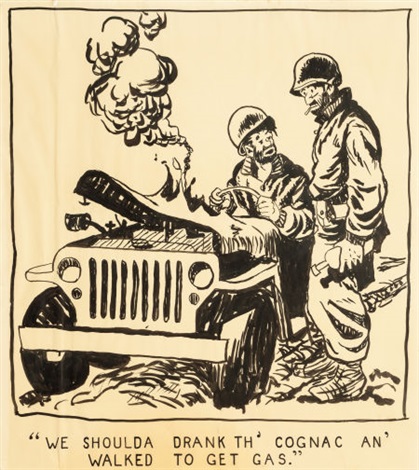

Of course with his drawings being an integral part of all of his books, Bill had the decided edge on most mere authors. His book about his childhood in New Mexico and Arizona, A Sort of a Saga, is funny, well-written, and as good (or should we say better?) than anything Steinbeck or Twain put on paper. But it's an indisputable fact that the humor of Willie and Joe is as funny today as it was in 1943, and the predicaments of the two GI dogfaces making the best out of a bad situation is something that can be appreciated by anyone.īut what is not known even by many who do remember Bill and his creations is that he was one of America's greatest writers. The issues that he illustrated in the past, of life in the armed forces, the inequalities of society, and the duplicitousness of politicians stand the test of time precisely because we are still grappling with them today.The Greatest Generation would naturally produce the Greatest Cartoonist. Spurred on by a rebellious nature, Mauldin created works he believed would make an impact, and force the viewer to engage with the message. Addressing segregation in the armed forces, the civil rights movement of the 1960s, and the economic inequalities in America, Mauldin used his artistry and voice to create images that communicated more to his audience than the written word often could. Kennedy in 1963, 20 years after he first came to renown with his Willie and Joe cartoons, shows his continued ability to tap into the cultural zeitgeist of the time.ĭuring his long career Mauldin consistently questioned the privilege he witnessed in American politics, devoting some of his most intense critiques to the social injustices of the period. His famous cartoon reacting to the assassination of President John F. Louis Post-Dispatch, where he won his 2 nd Pulitzer Prize, and then at the Chicago Sun-Times. He transitioned his critique of military leaders to those leading the nation, finding success as a political cartoonist for the St. These platforms allowed him to expose and speak out against the inequalities he witnessed in society at large. As the youngest Pulitzer Prize winner, his fame preceded him, opening doors in Hollywood, syndication in hundreds of newspapers, and books that were instant best-sellers.

His return home gave him fame and fortune beyond his imaginings. Through his characters Willie and Joe, he was able to capture the cultural nuances of life in the Army, providing comedic relief or consternation - depending on the viewer – while simultaneously presenting the grim reality of the war to the home front. His art saw him through World War II, where he used his own experiences and those of the downtrodden infantryman to present a true account of life on the front. Born into poverty, Mauldin used his pen and paper to change his fortune and circumstances.


 0 kommentar(er)
0 kommentar(er)
